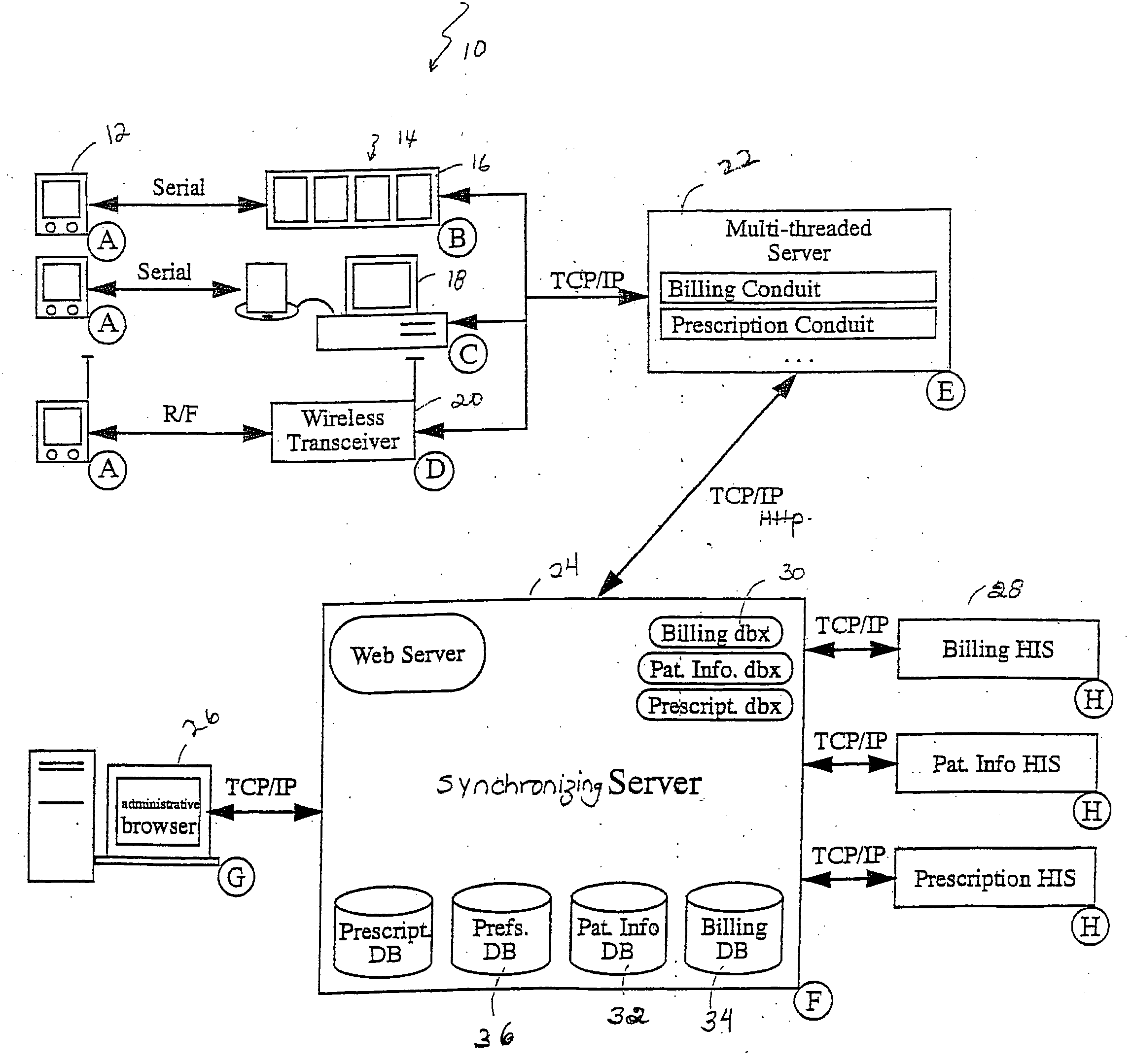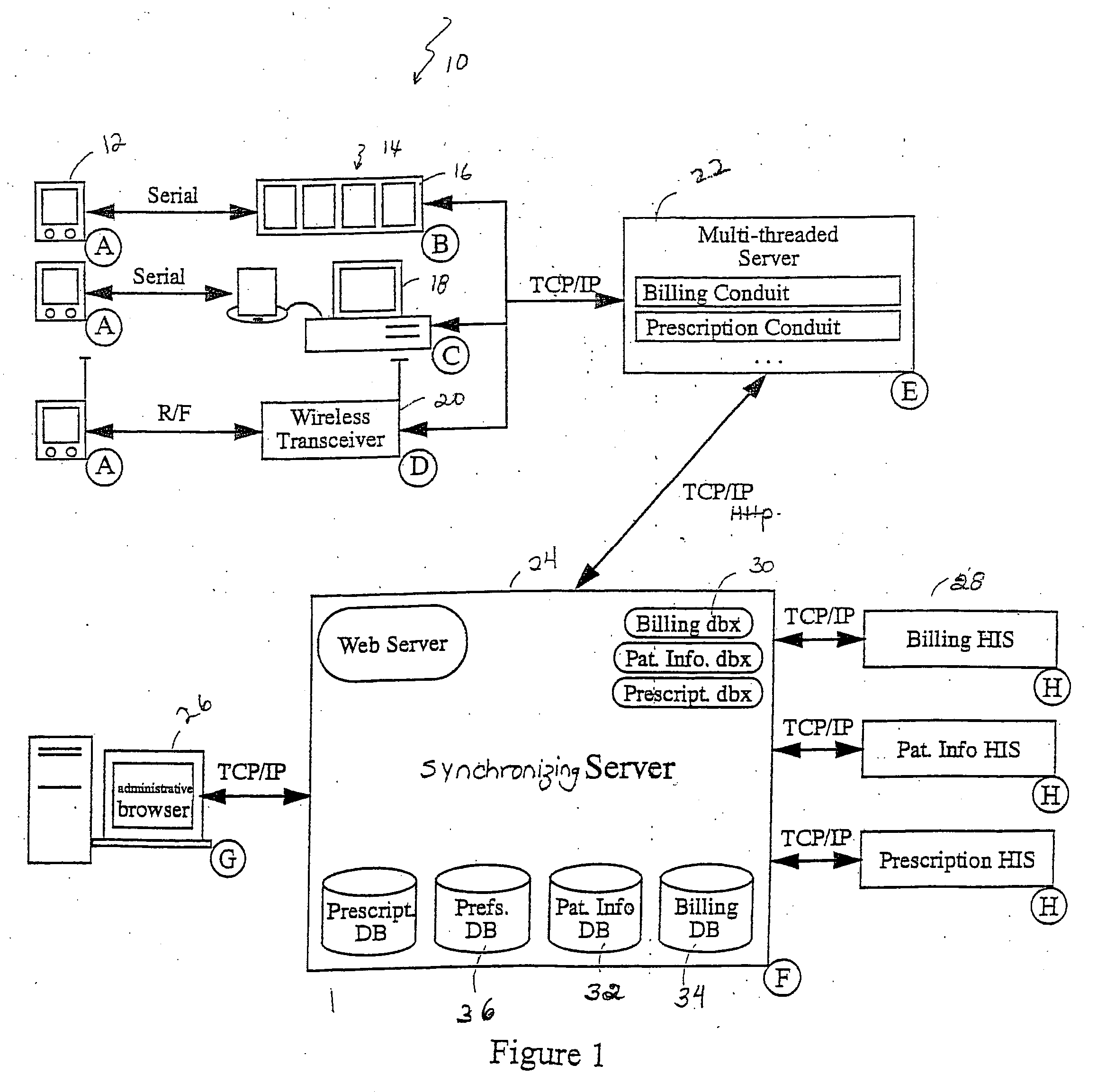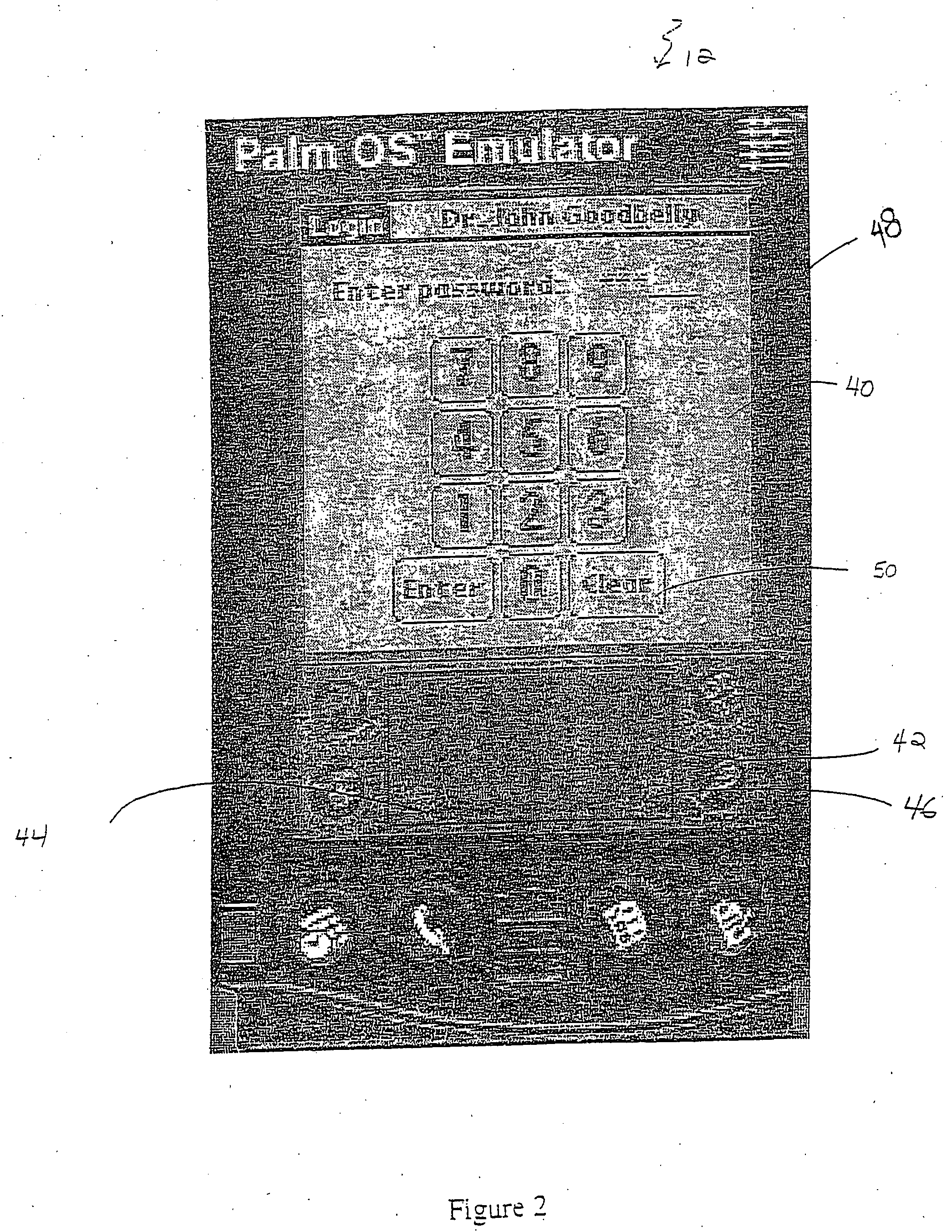Device for automating billing reimbursement
a billing reimbursement and device technology, applied in the field of physical health insurance billing system, can solve the problems of unrealized revenue, lost revenue, fines from healthcare insurance reimbursement agencies, etc., and achieve the effect of reducing the number of cards used, reducing the number of billing errors, and improving the quality of billing
- Summary
- Abstract
- Description
- Claims
- Application Information
AI Technical Summary
Benefits of technology
Problems solved by technology
Method used
Image
Examples
Embodiment Construction
[0038] The present invention relates to an apparatus for automating information processing and synchronizing information. This apparatus is particularly suited to physicians who traditionally carry 3″×5″ cards while visiting patients and enter diagnosis and billing information on the cards to determine the amount to be charged. The present invention system which includes a handheld processing device replaces the 3″×5″ cards and enables physicians to electronically enter the billing information, and to have access to current patient demographic information, billing codes, and billing guidelines. The physicians can sort the patient information by categories, such as patient location, to increase their efficiency.
[0039] The billing information as input by the physician is then downloaded to a synchronizing server via an interface device. The synchronizing server stores data and updates from the handheld processing device and forwards the information to an information system such as a ...
PUM
 Login to View More
Login to View More Abstract
Description
Claims
Application Information
 Login to View More
Login to View More - R&D
- Intellectual Property
- Life Sciences
- Materials
- Tech Scout
- Unparalleled Data Quality
- Higher Quality Content
- 60% Fewer Hallucinations
Browse by: Latest US Patents, China's latest patents, Technical Efficacy Thesaurus, Application Domain, Technology Topic, Popular Technical Reports.
© 2025 PatSnap. All rights reserved.Legal|Privacy policy|Modern Slavery Act Transparency Statement|Sitemap|About US| Contact US: help@patsnap.com



